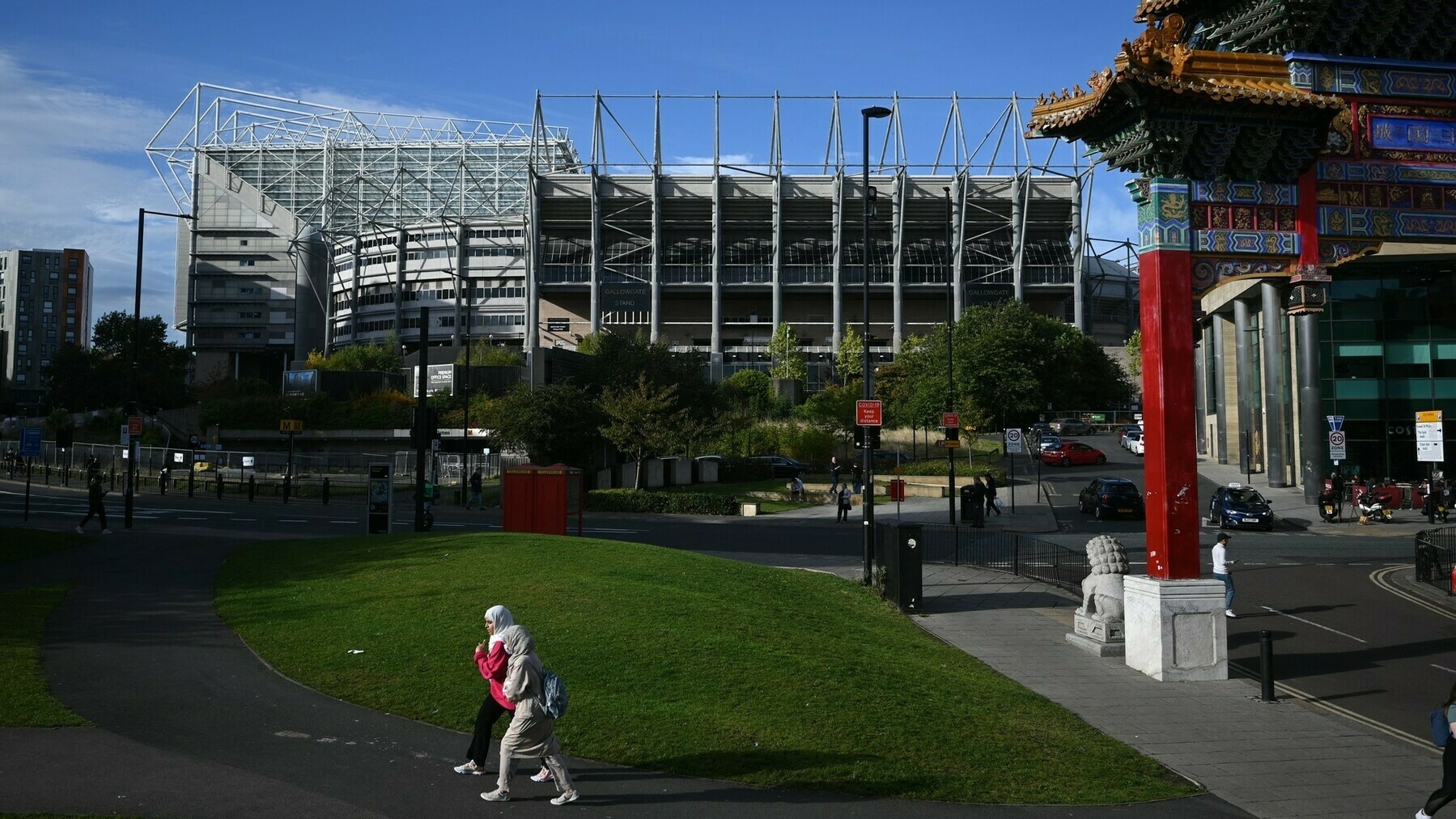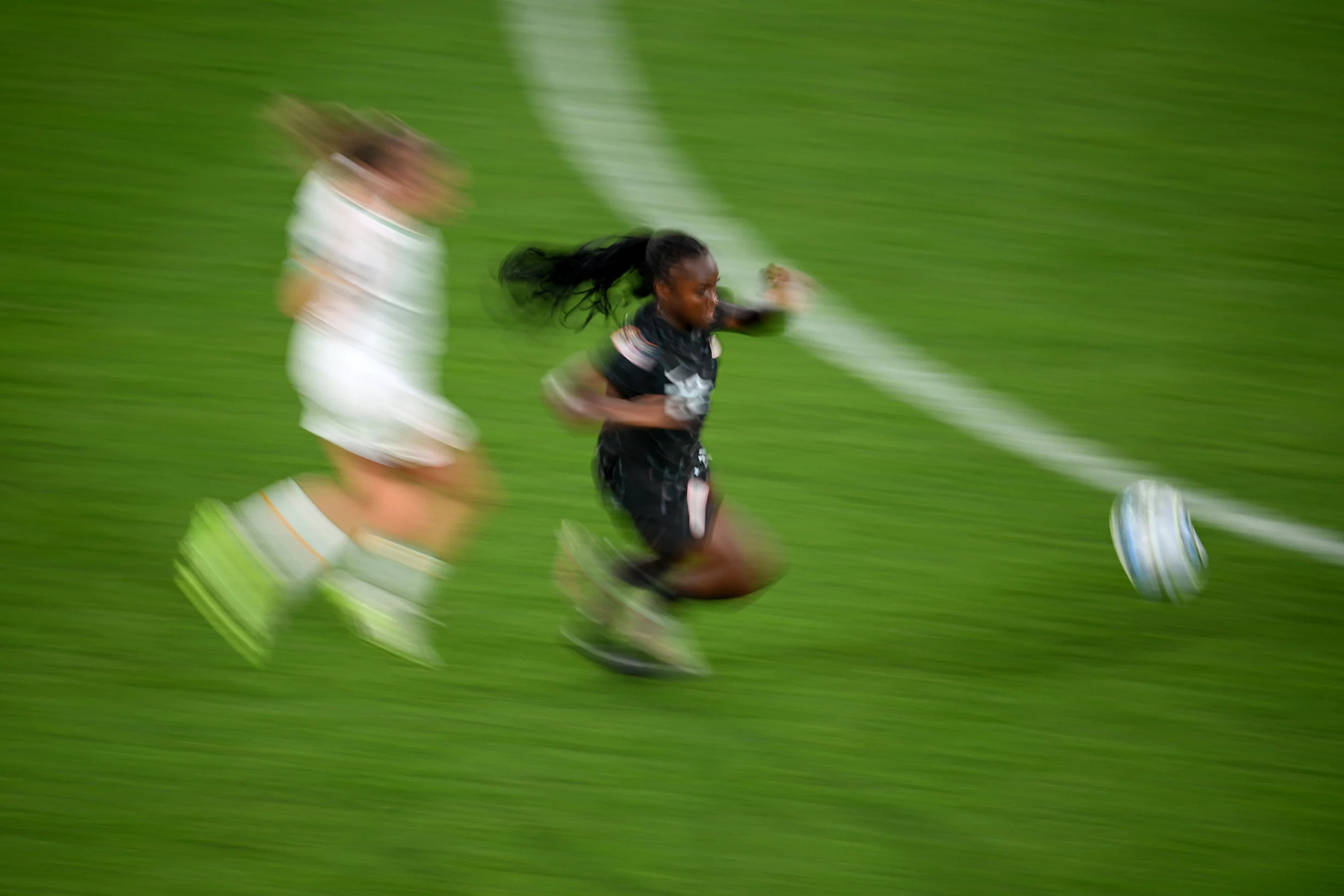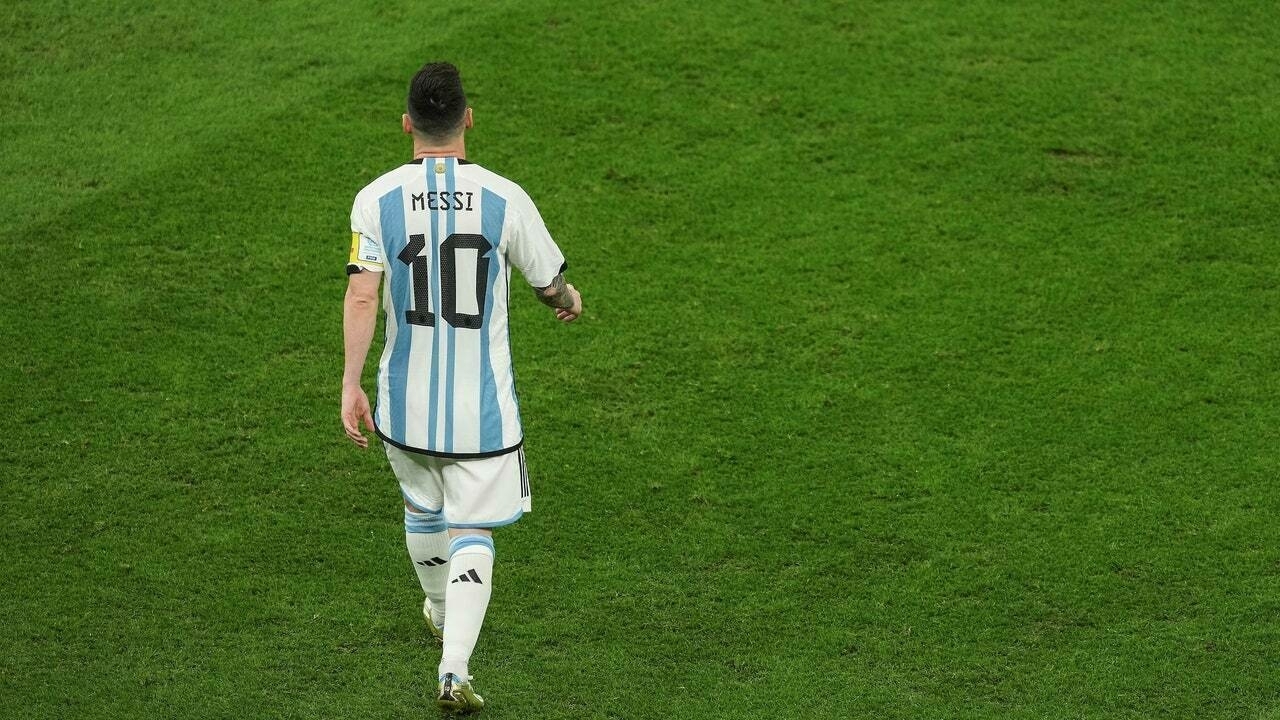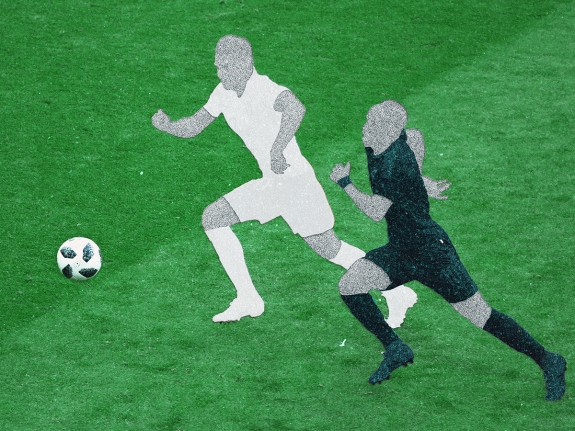AI sports recruitment
A few weeks ago, I watched part of the EA Sports FC 24 announcement video with my son. The CEO of Electronic Arts mentioned something that anyone who’s been paying attention already knows: games like FIFA (of which EA Sports FC is the spiritual successor) has transformed football.
There’s a symbiotic link between how people play football and how people play football video games. What’s less easy to spot is how talent is identified, nurtured, and shaped. That’s where articles like this one about AI in the behind-the-scenes processes comes in.
As someone with two very sporty kids, and one of whom is potentially on a pathway to professional football, this is fascinating to me.
There's no doubt that professional sports have been primed for the potential impact of artificial intelligence. Innovations have the potential to transform the way we consume and analyze games from both an administrative and fan standpoint. For soccer specifically, there are opportunities for live game analytics, match outcome modeling, ball tracking, player recruitment, and even injury predicting — the opportunities are seemingly endless.Source: Will AI revolutionize professional soccer recruitment? | Engadget[…]
Luis Cortell, senior recruiting coach for men’s soccer for NCSA College Recruiting, is a little less bullish, but still believes AI can be an asset. “Right now, soccer involves more of a feel for the player, and an understanding of the game, and there aren’t any success metrics for college performance," he said. “While AI won’t fully fill that gap, there is an opportunity to help provide additional context.”
At the same time, people in the industry should be wary of idealizing AI as a godsend. “People expect AI to be amazing, to not make errors or if it makes errors, it makes errors rarely,” Shapiro said. The fact is, predictive models will always make mistakes but both researchers and investors alike want to make sure that AI innovations in the space can make “fewer errors and less expensive errors” than the ones made by human beings.
[…]
The MLS said in a statement that ai.io’s technology “eliminates barriers like cost, geography and time commitment that traditionally limit the accessibility of talent discovery programs.” Felton-Thomas said it is more important to understand that ai.io will “democratize” the recruiting process for the MLS, ensuring physical skills are the most important metric when leagues and clubs are deciding where to invest their money. “What we’re looking to do is give the clubs a higher confidence level when they’re making these decisions on who to sign and who to watch.” By implementing the AI-powered app, recruitment timelines are also expected to be cut.
Walking around like Lionel Messi
I didn’t get a chance to read this excellent article in The New Yorker about Lionel Messi until today. It was published the week leading up to the World Cup Final, which of course Argentina won, making Messi possibly the greatest player of all time (behind Pele? RIP.)
What I like about it is that it shows that ‘work’ doesn’t always look like running around the place looking ‘busy’. In fact, the greatest people at a given thing are usually involved in the background while people are concentrating solely on the foreground.
Messi is soccer’s great ambler. To keep your eyes fixed on him throughout a match is both spellbinding and deadly dull. It is also a lesson in the art and science of watching a soccer match. If you ask any astute observer—an experienced coach or player or tactically tuned-in analyst—how to understand the game, they will advise you to take your eyes off the ball. There may well be an analogous precept, with a German name, in philosophy or art history or mechanical physics. The idea is this: to apprehend the main thrust of the narrative, to really wrap your mind around what’s going on, you must shift your focus from the foreground to the background.Source: The Genius of Lionel Messi Just Walking Around | The New Yorker[…]
[I]f you happen to be watching a match featuring Leo Messi, you’ll notice that something on the order of eighty-five per cent of the time, he can be found off the ball, strolling and dawdling and looking mildly uninterested. It is the kind of behavior associated with selfish players, prima donnas who expend no effort on defense and bestir themselves only when goal-scoring opportunities arise. Messi, of course, is one of the most prolific scorers of all time, with a career total of nearly eight hundred goals in club and international competition. His penchant for walking is not a symptom of indolence or entitlement; it’s a practice that reveals supreme footballing intelligence and a commitment to the efficient expenditure of energy. Also, it’s a ruse—the greatest con job in the history of the game.
A famous aphorism, usually attributed to the Spanish manager Vicente del Bosque, sums up the subtly visionary play of the midfielder Sergio Busquets this way: when you watch the game, you don’t see Busquets—but when you watch Busquets, you see the whole game. Something related might be said about the great Argentinean: when you watch Messi, you watch him watching the game. Another manager, Manchester City’s Pep Guardiola, who coached Messi for four years at Barcelona, has described his walking, especially in the early stages of a game, as form of cartography—an exercise in scanning and surveying, taking the measure of the defense, noticing where the vulnerabilities lie, and calculating when and how opportunities might be seized. “After five, ten minutes, he’ll have a map in his eyes and in his brain,” Guardiola has said. “[He’ll] know exactly what is the space and what is the panorama.”
Proving endemic racism and sexism in the world of football
Anyone who follows football will perhaps be disappointed yet unsurprised that racism and sexism continue to be part of the beautiful game.
This study is clever in the way that it shows that those watching football matches use coded language and are biased against women. Hopefully, it will help all of us figure out better ways forward.
(I actually really enjoy watching women’s football with my family!)
The resulting paper, “Pace and Power: Removing unconscious bias from soccer broadcasts,” caused a stir when they presented it at last month’s New England Symposium on Statistics in Sports. Of the 47 sports fans who watched a two-minute clip of the World Cup TV broadcast, 70 percent said that Senegal, whose players were all Black, was “more athletic or quick.” But of 58 others who saw an animation of the same two minutes without knowing which teams they were watching, 62 percent picked Poland, whose players were all white, as the more athletic side.1 The physical advantages that supposedly defined the African team’s style of play disappeared as soon as their skin color did.Interestingly, they also looked at gender as well as race:[…]
The athleticism flip-flop offers a new kind of evidence of a prejudice that affects how Black players of every nationality are perceived. For decades, researchers have documented media stereotypes of African players as “‘powerful,’ ‘big-thighed,’ ‘lithe of body,’ ‘big,’ ‘explosive,’ and like ‘lightning,’ attributes that were to be contrasted with ‘the know-how that England possess.’” As Belgian forward Romelu Lukaku, who is Black, told The New York Times, “It is never about my skill when I am compared to other strikers.” Now, for the first time, researchers have a way to isolate how race influences direct perceptions of the game.
The study also examined attitudes toward gender by showing viewers a pair of two-minute clips, one from the American top-flight National Women’s Soccer League and another from League Two, the English men’s fourth tier. Even though the NWSL draws more fans to games, its average player earns about a quarter as much as the average player in League Two. Gregory and Pleuler were curious whether this “clear gender pay gap” could be explained by a difference in the quality of the soccer shown on TV, as some have argued.Source: Soccer Looks Different When You Can’t See Who’s Playing | FiveThirtyEightPeople who watched the broadcasts said that the men’s game was “higher quality” by a 57 percent to 43 percent margin. Those who saw the renders with genderless stick figures preferred the women’s match, 59 percent to 41 percent. The results weren’t statistically significant across a small sample of 105 mostly male respondents, but Pleuler believes the line of research is promising. “I think these results are suggestive that your average soccer fan can’t tell the difference between something that does have a large investment level and the women’s game, which does not,” he said.
Sports data and GDPR
This is really quite fascinating. The use of player data has absolutely exploded in the last decade, and that's now being challenged from a GDPR (i.e. data privacy) point of view.
Some of it could be said to be reasonably innocuous, but when we get into the territory of players being compared against 'expected goals' things start to get tricky, I'd suggest.

Slade's legal team said the fact players receive no payment for the unlicensed use of their data contravenes General Data Protection Regulation (GDPR) rules that were strengthened in 2018.
Under Article 4 of the GDPR, "personal data" refers to a range or identifiable information, such as physical attributes, location data or physiological information.
BBC News understands that an initial 17 major betting, entertainment and data collection firms have been targeted, but Slade's Global Sports Data and Technology Group has highlighted more than 150 targets it believes have misused data.
[...]
Former Wales international Dave Edwards, one the players behind the move, said it was a chance for players to take more control of the way information about them is used.
Having seen how data has become a staple part of the modern game, he believes players rights to how information about them is used should be at the forefront of any future use.
"The more I've looked into it and you see how our data is used, the amount of channels its passed through, all the different organisations which use it, I feel as a player we should have a say on who is allowed to use it," he said.
Source: Footballers demand compensation over 'data misuse' | BBC News
On 'sportswashing'
There has been a lot written and recorded already about Newcastle United, my geographically-closest Premier League football team, and the rival of the team I actually support (Sunderland).
I am certainly sympathetic to the idea that individual people should live their values. But there has to be a line drawn somewhere. For example, I really like the music of the artist Morrissey, yet I think some of his politics and other views are distasteful and problematic.
Likewise, when the sovereign wealth fund of a foreign power provides your football team with untold riches, why shouldn’t you celebrate? While I’d love to live in a world where fans own football clubs (see AFC Wimbledon) as the article points out, this purchase needs to be placed in a wider narrative around Brexit and widening inequalities in society.

You might expect that this would be controversial in Newcastle. This is not any old country buying an English soccer club. It is a country run by the man the United States concluded to have ordered the dismembering of a journalist, a country conducting a brutal war in Yemen that is among the most barbarous in the world.Source: Britain’s Distasteful Soccer Sellout | The AtlanticAnd yet, few in Newcastle seem to care. I mean, why should they? Their rivals in the English Premier League are already owned by some pretty unpleasant regimes or people: Manchester City is controlled by Abu Dhabi, and Chelsea by a Russian oligarch with ties to the Kremlin. What’s the point in turning down someone’s money if nobody else is? The fixer who facilitated the Saudi takeover has, incredibly, insisted that the Saudi state was not taking over Newcastle’s soccer club, but rather its sovereign wealth fund, which, the fixer said, genuinely cared about human rights. Both, of course, are run by Crown Prince Mohammed bin Salman.
Beyond this cynical piece of performance art, however, the Newcastle United sale is emblematic of something far more fundamental and depressing about the state of Britain.
Like the flight of a sparrow through a lighted hall, from darkness into darkness

⚽ Is it too late to halt football’s final descent into a dystopian digital circus?
🎧 Why Music is Helpful for Concentration
😬 I Lived Through Collapse. America Is Already There.
😷 COVID-19 map for schools (UK)
Quotation-as-title from St Bede. Image from top-linked post.
The crisis in professional sport is one of its own making
I couldn't agree more with this analysis from Barney Ronay, one of my favourite sports writers:
Professional sport is facing a crisis of unprecedented urgency. It must be prepared to face it largely alone.
At which point it is worth being clear on exactly what is at stake. This is a moment of peril that should raise questions far beyond simply survival or sustaining the status quo. Questions such as: what is sport actually for? And more to the point, what do we want it to look like when this is all over?
It helps to define the terms of all this jeopardy. There has been a lot of emotive rhetoric about sport being on the verge of extinction, its very existence in doubt, as though the basic ability to participate, support and spectate could be vaporised out from beneath us.
This is incorrect. What is being menaced is the current financial management of professional sport, its existing models and cultural practices, much of which is pretty joyless and dysfunctional in the first place.
Barney Ronay, Never waste a crisis: Covid-19 trauma can force sport to change for good (The Guardian)
Was sport less enjoyable before loads of money was thrown at it? As Ronay points out, Gareth Bale earning £600,000 per week "could keep every club in League Two in business by paying their combined wage bill out of his annual salary".
I'm not sure the current model is sustainable, so if the pandemic forces a rethink, I'm all for it.


